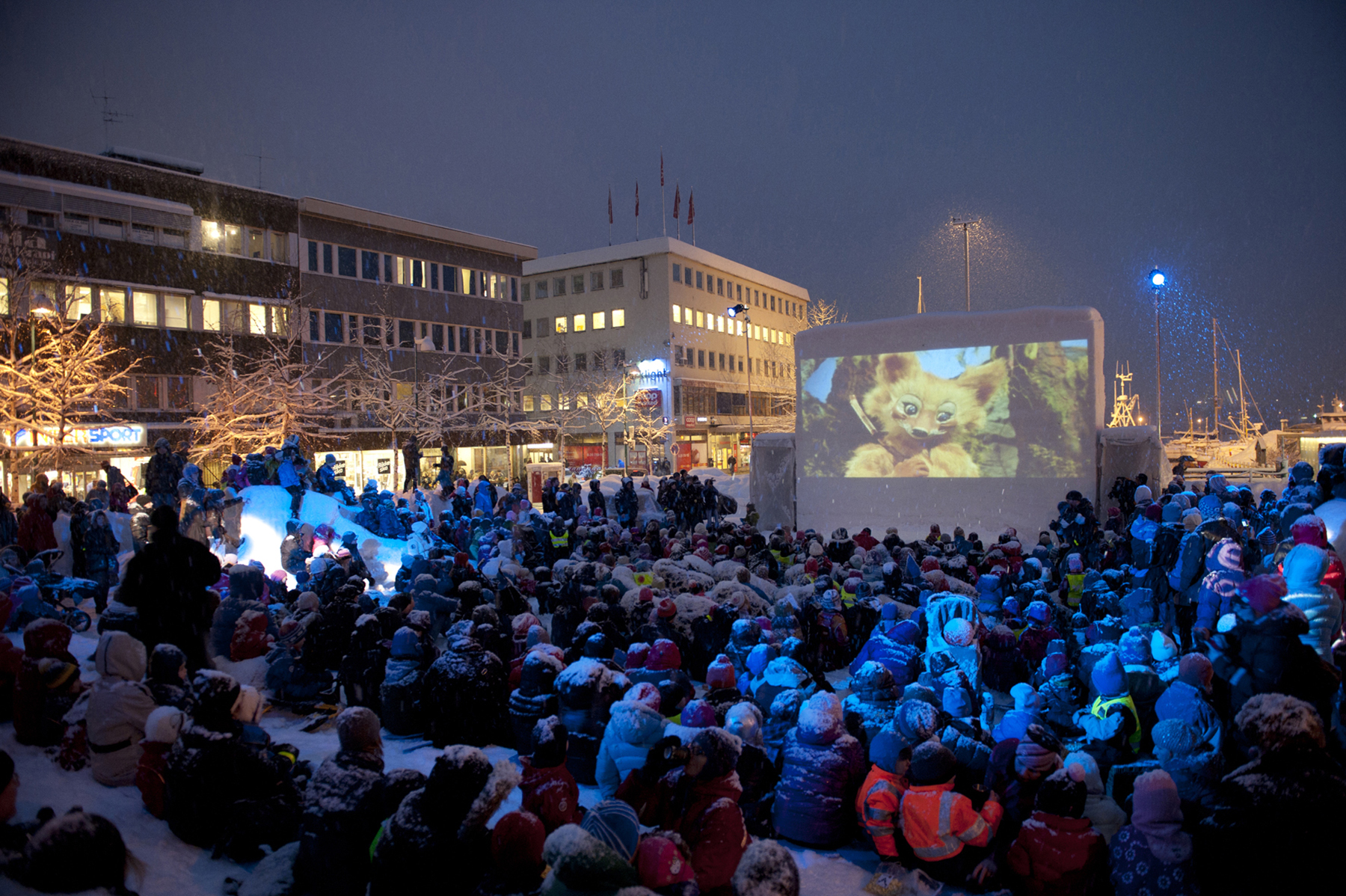
- Festivals
The Tromsø Film Festival: The Winter Cinema
The Tromsø Film Festival, in northern Norway, ran from January 16th to the 21st. It celebrated its 33rd edition and exhibited approximately 160 films, with 90 of them showing in the main program.
The event included public Q&A sessions with renowned filmmakers. Italy’s Carolina Cavalli came to Tromsø to talk about her film, Amanda. Ukrainian producer Darya Bassell presented his new film, Butterfly Vision. And French director Cedric Ido came to town to present his sci-fi work titled The Gravity. Additionally, the festival organized workshops and other engaging industry events.
The Winter Cinema, situated in the city square, featured around 60 films and treated the Tromsø community to such programs as ‘Films from the North’, starring works from all the Arctic areas: northern Norway, Sweden, Finland, Russia, Canada, Alaska, Iceland, and Greenland.
Speaking to festival director Lisa Hoen at the Tromsø headquarters, she said, “The Winter Cinema is really special because we live an Arctic life here. This is so Arctic – to get dressed, put on warm clothes, go and watch films outdoors. It’s an arena that is free for everybody. You don’t have to buy a ticket.” The cinema became more popular during the first year of Covid when they held world premieres. It has remained a favorite with the Tromsø community. “I think people have realized, ‘Okay, I can actually sit there for one hour or two hours and watch films. And it’s a great experience.’”
The opening film, Let the River Flow, won the Audience Award. The movie is about an important era in Norwegian history concerning the struggles and identity crisis of the Sami community (the indigenous people who live in Lapland across northern Norway, Sweden, Finland, and the Kola Peninsula of Russia).
Says Hoen: “The opening film is, of course, a highlight for me. Let The River Flow is a really important film for the whole of Norway. Especially northern Norway. It’s about a very important political happening back in 1979 and ’80: the building of this hydro electrical dam to get more electricity, and power, and energy.”
Some of the other wins at the festival included The Aurora Prize, awarded to Women Talking. The Honorable Mention went to The Blue Caftan, a co-production from France, Morocco, Belgium and Denmark. The film also won the Don Quixote prize. The Fipresci award went to Pacification, a production from France, Spain, Germany, and Portugal. As for the Tromsø Palm, the award distinguished the Norwegian film Unborn Biru.
The closing night party was held at Storgata Camping and featured live performances by A Million Pineapples, Kinsella, DJ Nefertiti, Nonne, Tondra, and The Dodge Brothers.
One of the unique components of the festival was the slate of films presented by the Sami community. Hoen says, “The Sami films have been a part of our festival for a long time through the ‘Films From the North’ program. Indigenous films have been a natural part for us in this program. As a festival director, I want to focus on indigenous films and Sami films in particular because I’m from northern Norway and my family also has a Sami background. It’s important for me, for Tromsø, for our city. There has been a discussion about whether Tromsø is a Sami city. After all, this is the city with the biggest Sami population in Norway. The Sami language exists. The Sami culture and the Sami language have been hidden for many years. So, it’s time to bring it up and highlight it.”
Hoen has worked on and off with the festival since 2005. “It’s become a lot bigger. I think we have more films and a bigger audience. Also, the festival has developed as an organization because we run Verdensteatret, the old cinema, all year. We have a silent film festival and a children’s film festival.”
Thanks to the attention garnered, the film festival has helped put Tromsø on the map in many respects. “Yes,” Hoen nods. “It’s really important for me. I was born in Tromsø. I grew up here. TIFF is one of the reasons I stayed here. I started attending the festival when I was 17. I skipped school together with a friend and went to the festival,” she chuckles. “With TIFF I always felt we had this pulse in the city, like something’s going on. It’s very international. We have many international guests. I felt I was in touch with the world although I’m all the way up in the Arctic.”

